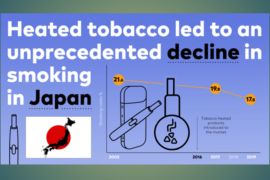Women's empowerment is measured by the United Nations Development Programme using data such as female representation in parliament, voting rights and comparisons of male-to-female income in each country.
The study shows that men are currently five times more likely to smoke than women in countries with lower measures of female empowerment. In countries with relatively high female empowerment, such as Australia, Canada, Norway, Sweden and the United States of America, this gap has been closed: women smoke almost as much as men do.
"This study highlights the need to act quickly to curb smoking among women, particularly in developing countries." says Dr Douglas Bettcher, Director of the Tobacco Free Initiative at WHO. "The tobacco epidemic is still in its early stages in many countries but is expected to worsen. Strong tobacco control measures such as bans on tobacco advertising are needed to prevent the tobacco industry from targeting women."
"We must pay more attention to the ways in which the tobacco industry is capitalizing on societal changes to target women, such as marketing cigarettes to women as a symbol of emancipation," says study co-author, Sara C Hitchman who conducted the study with Dr Geoffrey T Fong from the International Tobacco Control Policy Evaluation Project at the University of Waterloo in Ontario, Canada. "Women?s empowerment must continue, but does the bad necessarily have to follow the good".
The Tobacco Free Initiative at WHO encourages countries to prevent the spread of the tobacco epidemic by implementing policies outlined in the WHO Framework Convention on Tobacco Control. These include public awareness campaigns, packaging and promotion regulations and tax measures to reduce demand for tobacco products
(KR-FNY/H-AK)
Editor: Aditia Maruli Radja
Copyright © ANTARA 2011










